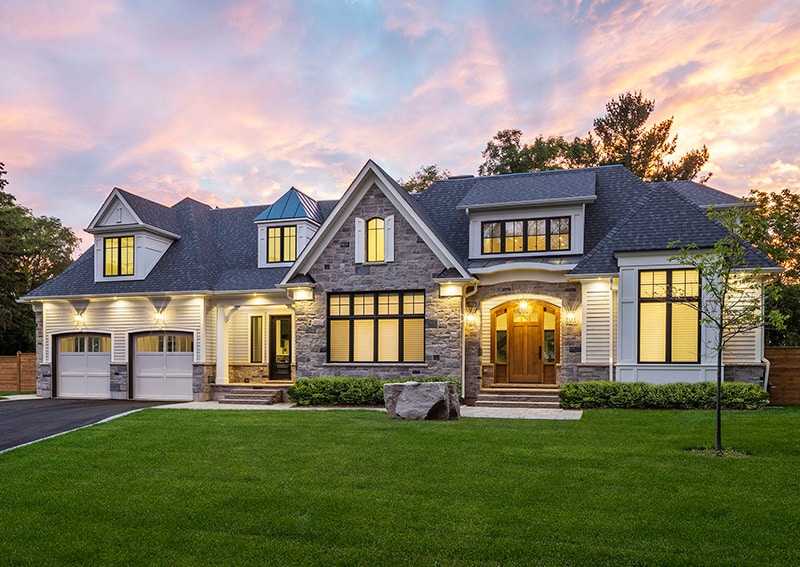The world of home construction has entered a transformative era driven by digital innovation. Custom home builders Asheville are increasingly turning to advanced tools and smart solutions that streamline the building process, enhance design accuracy, and create homes that reflect both lifestyle and sustainability goals. This evolution is not just about convenience; it is shaping a future where homeowners enjoy greater involvement, efficiency, and personalisation throughout every stage of the build.
Digital Design and Visualisation
One of the most significant shifts in custom home building is the rise of digital design platforms. Advanced 3D modelling software allows architects and homeowners to collaborate in real time, visualising every detail before a single brick is laid. Virtual walkthroughs make it easier to adjust layouts, change finishes, or even experiment with lighting effects. This reduces miscommunication and ensures that what is imagined on screen translates accurately into the physical home.
These technologies also support a faster approval process, as builders can present clear visual evidence of their plans to clients and regulatory bodies. The ability to refine designs digitally minimises costly errors during construction and ensures a smoother journey from concept to completion.
Smart Homes and Connected Living
Technology has also redefined what it means to live in a custom-built home. The integration of smart home systems is now a common request among clients, offering greater control, security, and comfort. Automated lighting, climate control, and voice-activated assistants are no longer luxuries; they have become essential features that align with modern lifestyles.
Energy-efficient appliances, combined with real-time usage monitoring, allow homeowners to reduce waste and manage costs more effectively. The result is a home that is not only stylish and functional but also responsive to the needs of those who live within it.
Sustainable Building Through Technology
Sustainability has become central to custom construction, and technology plays a vital role in achieving it. Builders now use advanced materials that combine durability with eco-friendly performance, such as recycled composites or low-emission concrete. Design software can calculate energy efficiency before construction begins, ensuring that insulation, window placement, and roofing materials are optimised for reduced energy consumption.
Renewable energy solutions, including solar panels and geothermal systems, are increasingly integrated at the planning stage. By using digital tools, builders can forecast the long-term savings and environmental impact, helping clients make informed choices that align with their values.
The Role of Technology in Asheville’s Growth
Asheville, North Carolina, is a city known for its scenic landscapes, vibrant culture, and growing demand for personalised housing. Here, the role of technology in custom home building is particularly prominent. Local builders combine respect for the area’s natural beauty with cutting-edge digital tools that allow homes to blend harmoniously with the environment.
Custom home builders Asheville often work with clients who seek properties that celebrate mountain views, maximise natural light, and reflect sustainable living. Through 3D visualisation, drone mapping, and advanced planning software, builders can design homes that preserve the landscape while delivering modern comfort. Technology enables Asheville to balance growth with environmental stewardship, ensuring that new developments enhance rather than overwhelm the region’s unique character.
Construction Efficiency and Automation
On the construction site itself, technology is revolutionising efficiency. Automated machinery, precision tools, and even robotics are beginning to play a role in tasks that once required extensive manual labour. Drones provide aerial surveys, allowing builders to monitor progress, track resources, and quickly identify potential issues.
These innovations not only accelerate project timelines but also improve safety by reducing the need for workers to operate in high-risk environments. With fewer delays and better resource management, homeowners benefit from more predictable costs and timely delivery.
Enhancing Client Collaboration
Perhaps one of the most valuable aspects of technology is how it strengthens the relationship between builders and clients. Cloud-based platforms enable seamless communication, where updates, schedules, and budgets are accessible at any time. Clients can review progress photos, approve design changes, or track milestones without needing to be physically present at the site.
This transparency fosters trust and empowers homeowners to feel more involved in the process. It also allows builders to respond quickly to requests, ensuring that the final home is a genuine reflection of the client’s vision.
Conclusion
Technology has moved far beyond being a support tool in construction; it is now the foundation on which custom home building thrives. From digital design and smart home integration to sustainability and efficiency, innovation is reshaping how builders and clients collaborate to bring dreams to life.
In locations like Asheville, where natural beauty and cultural vibrancy demand thoughtful building practices, technology is ensuring that homes are not only functional but also meaningful. As these tools continue to evolve, custom home building will become even more precise, efficient, and responsive to the individual needs of homeowners.





